Table of Contents
Introduction
Iguana lifespan is a crucial topic for anyone considering these fascinating reptiles as pets. Known for their unique looks and calm demeanor, iguanas can live long, fulfilling lives with proper care. But how long do iguanas live? The lifespan of an iguana depends on its species, environment, and the quality of care it receives. In this article, we’ll explore 6 essential facts about iguana lifespan and how you can extend it.
In this article, we’ll explore the average lifespan of different iguana species, the challenges they face in the wild, and the steps you can take to ensure your pet iguana lives a long, healthy life.
1. Average Lifespan of Iguanas
The average lifespan of an iguana varies widely depending on whether it lives in the wild or in captivity. In the wild, iguanas typically live 8–12 years, while captive iguanas can live 12–20 years or more with proper care.
The disparity stems from the challenges wild iguanas face, such as predators, food scarcity, and habitat destruction. Captive iguanas benefit from a controlled environment, regular meals, and veterinary care, all of which contribute to a longer life.
Interestingly, some iguana species can surpass this average. With meticulous care, captive iguanas have been known to live well into their twenties, and rare cases of iguanas reaching 30 years have been reported.
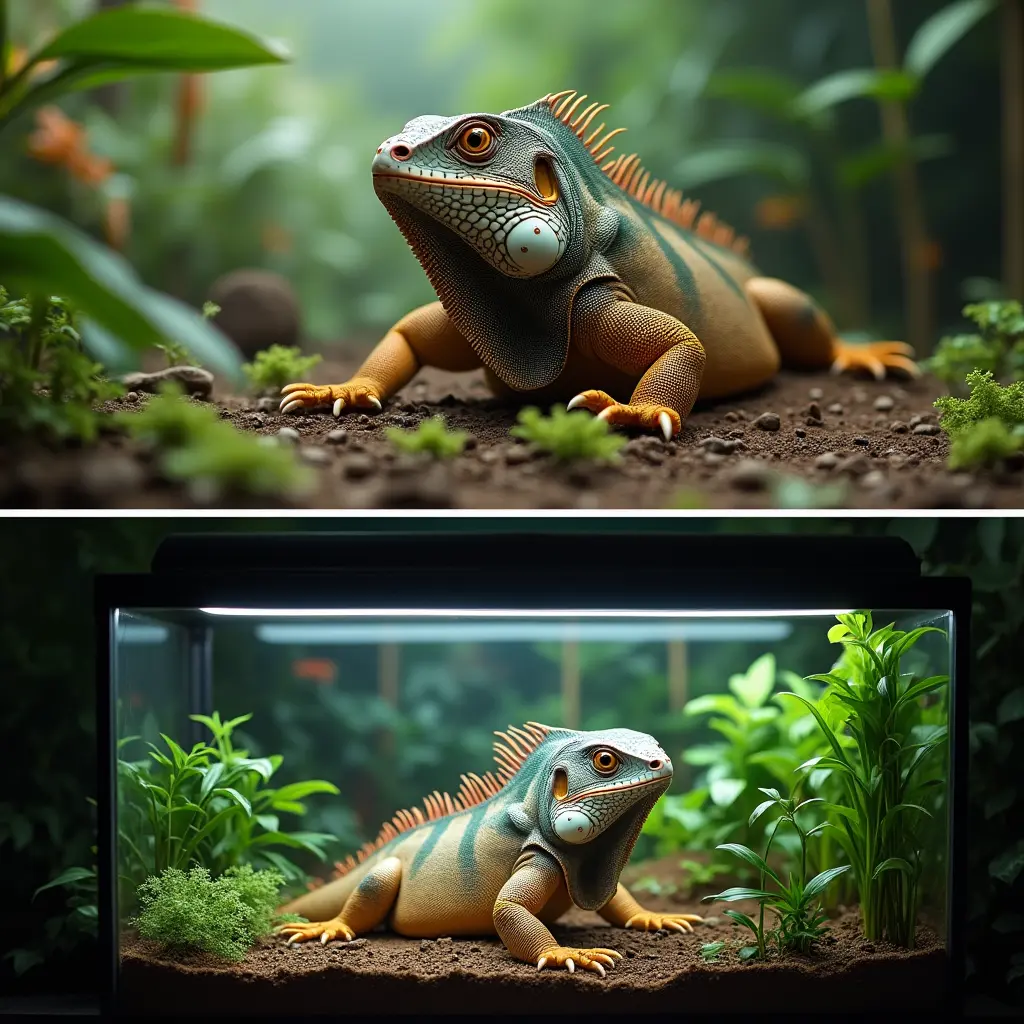
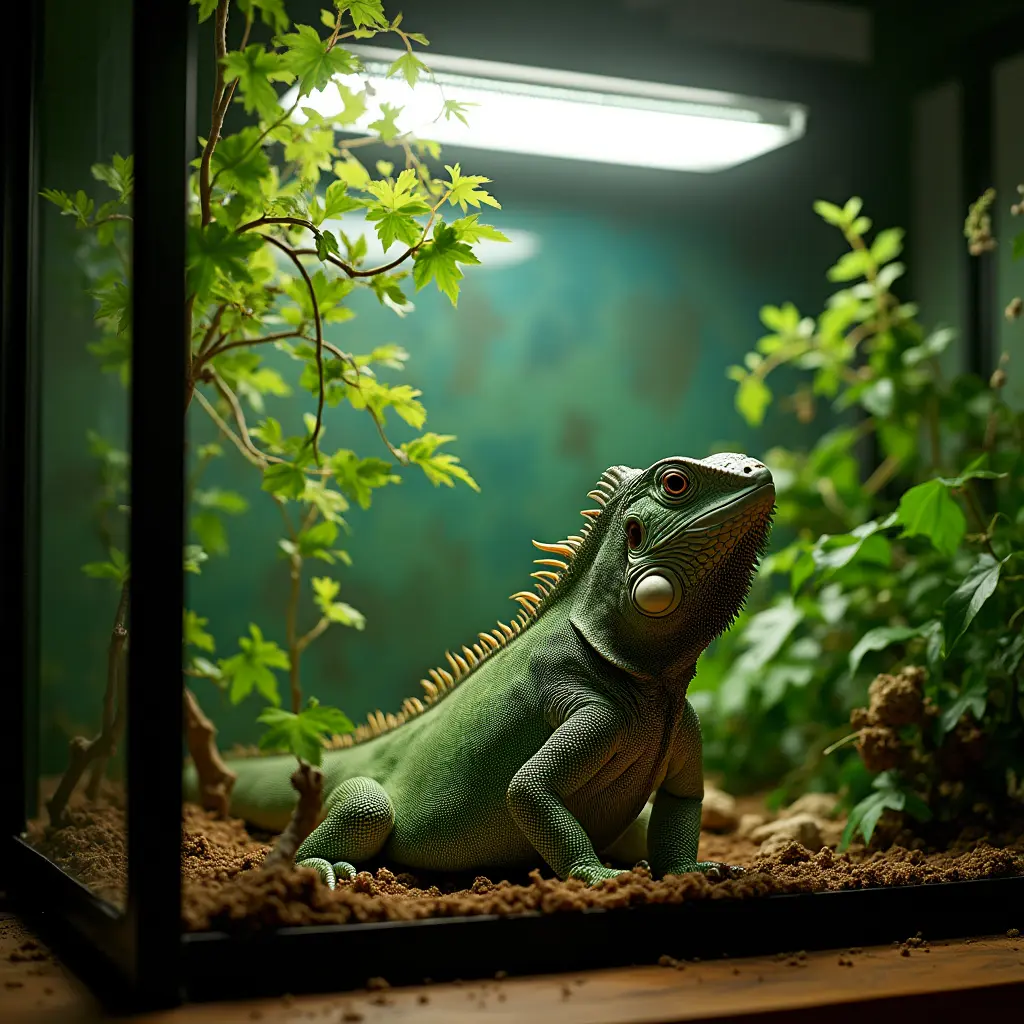
2. Lifespan by Species
Not all iguana species are created equal when it comes to longevity. Each species has its own unique characteristics, including lifespan. Here’s a breakdown of the most common species:
- Green Iguanas: One of the most popular species among pet owners, green iguanas typically live 15–20 years in captivity. Their robust health and adaptability make them a favorite.
- Blue Iguanas: Native to the Cayman Islands, blue iguanas have an impressive lifespan, often reaching 20–40 years with proper care. In the wild, however, they face threats that can shorten their lives.
- Marine Iguanas: Found exclusively in the Galápagos Islands, marine iguanas usually live 10–15 years. Their unique adaptation to feeding on algae sets them apart, but their harsh environment impacts their longevity.
- Desert Iguanas: Adapted to arid conditions, these iguanas have a lifespan of around 7–10 years. They are less common in captivity due to their specific habitat needs.
Knowing the lifespan of your iguana’s species can help you plan and provide the best care.
3. Factors Influencing Iguana Lifespan
The lifespan of an iguana depends on several critical factors:
A. Diet
A balanced diet is essential for iguana health. Their diet should consist primarily of leafy greens (collard greens, mustard greens, kale), vegetables (squash, bell peppers, carrots), and occasional fruits (mango, papaya, berries). Avoid feeding them animal protein or high-oxalate foods, as these can lead to health issues.
B. Habitat
The habitat plays a vital role in an iguana’s life. They need a spacious enclosure that closely resembles their natural surroundings, ensuring they feel secure and comfortable.
C. Health Care
Regular veterinary checkups are crucial to detect and address potential health issues early. Common iguana ailments include skin infections, parasites, and malnutrition.
D. Stress
Stress is an often-overlooked factor that can shorten an iguana’s life. Loud noises, poor handling, or lack of hiding spots can stress them, leading to weakened immunity and illness.
4. Wild vs. Captive Iguanas
The differences between wild and captive iguanas are stark, particularly in terms of lifespan and lifestyle.
A. Wild Iguanas
Wild iguanas face numerous threats, including:
- Predators: Birds of prey, snakes, and larger mammals often prey on iguanas.
- Habitat Loss: Urbanization and deforestation reduce their natural habitats.
- Climate Change: Rising temperatures and changing ecosystems affect food availability.
Despite these challenges, wild iguanas are remarkably resilient, adapting to their surroundings for survival.
B. Captive Iguanas
Captive iguanas, on the other hand, live under controlled conditions. With no predators to worry about and regular meals, they enjoy a longer life. However, the quality of care they receive makes all the difference. Owners who replicate their natural environment and provide proper nutrition are rewarded with healthy, long-lived pets.

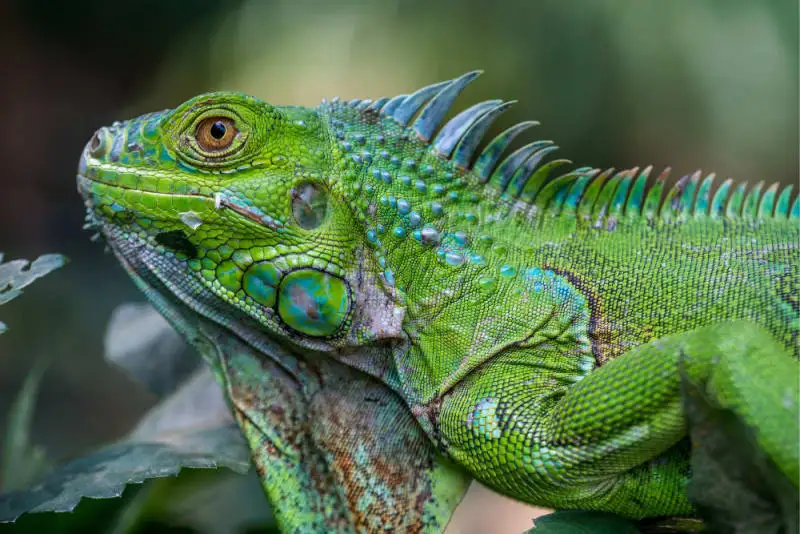
5. How to Extend Your Iguana’s Life
If you’re a proud iguana owner, you’ll want to give your pet the best possible care. Here are some tips to help your iguana thrive:
A. Nutrition
A healthy diet is key. Focus on calcium-rich greens and avoid overfeeding fruits or unhealthy treats. Fresh water should always be available.
B. Proper Enclosure
Create a living space that mirrors the iguana’s natural habitat, incorporating elements like climbing branches, basking spots, and ample room for movement.
C. UVB Lighting
Iguanas require UVB light to synthesize vitamin D and absorb calcium. Without it, they’re at risk of developing metabolic bone disease, a common but preventable condition.
D. Regular Checkups
Schedule annual veterinary visits to monitor your iguana’s health. Vaccinations and deworming may be necessary depending on the region.
E. Interaction
While iguanas are not typically affectionate, handling them gently and regularly can help them adapt to human interaction, reducing stress.
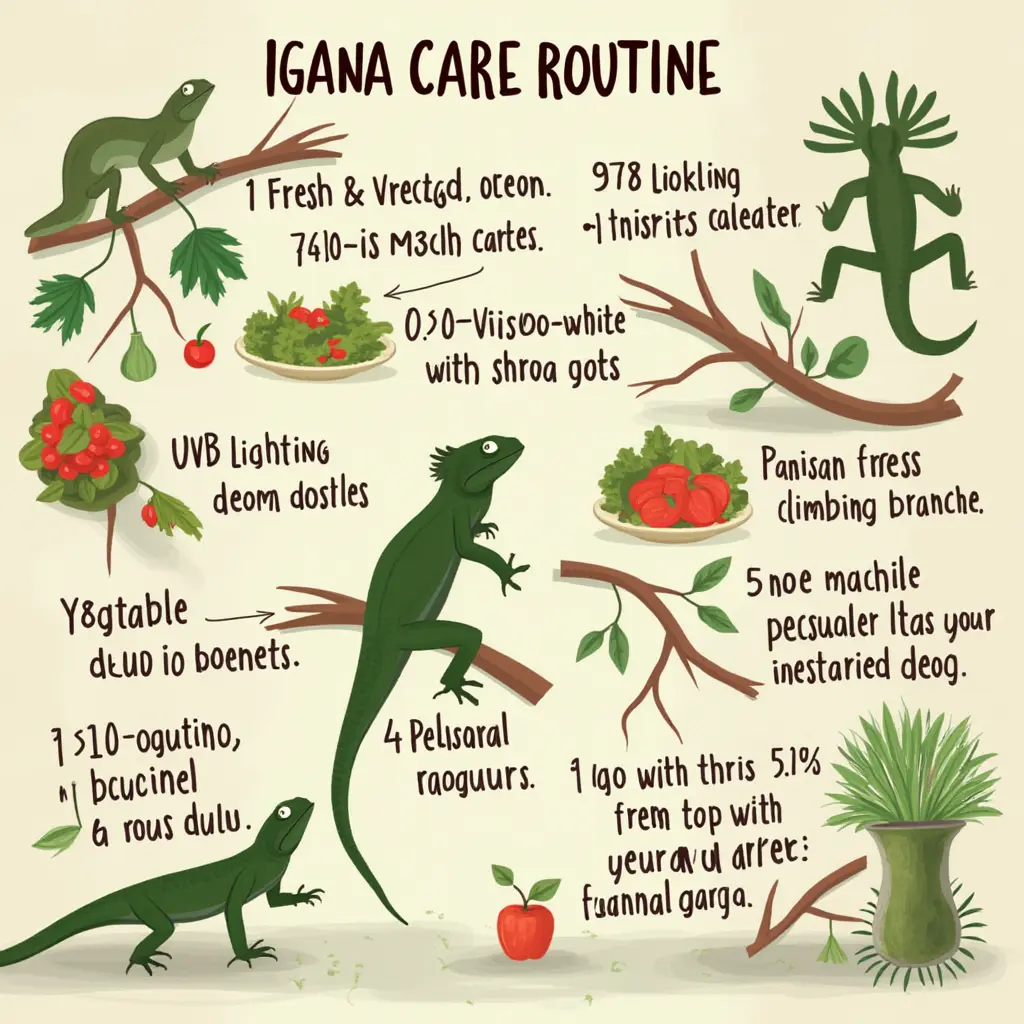
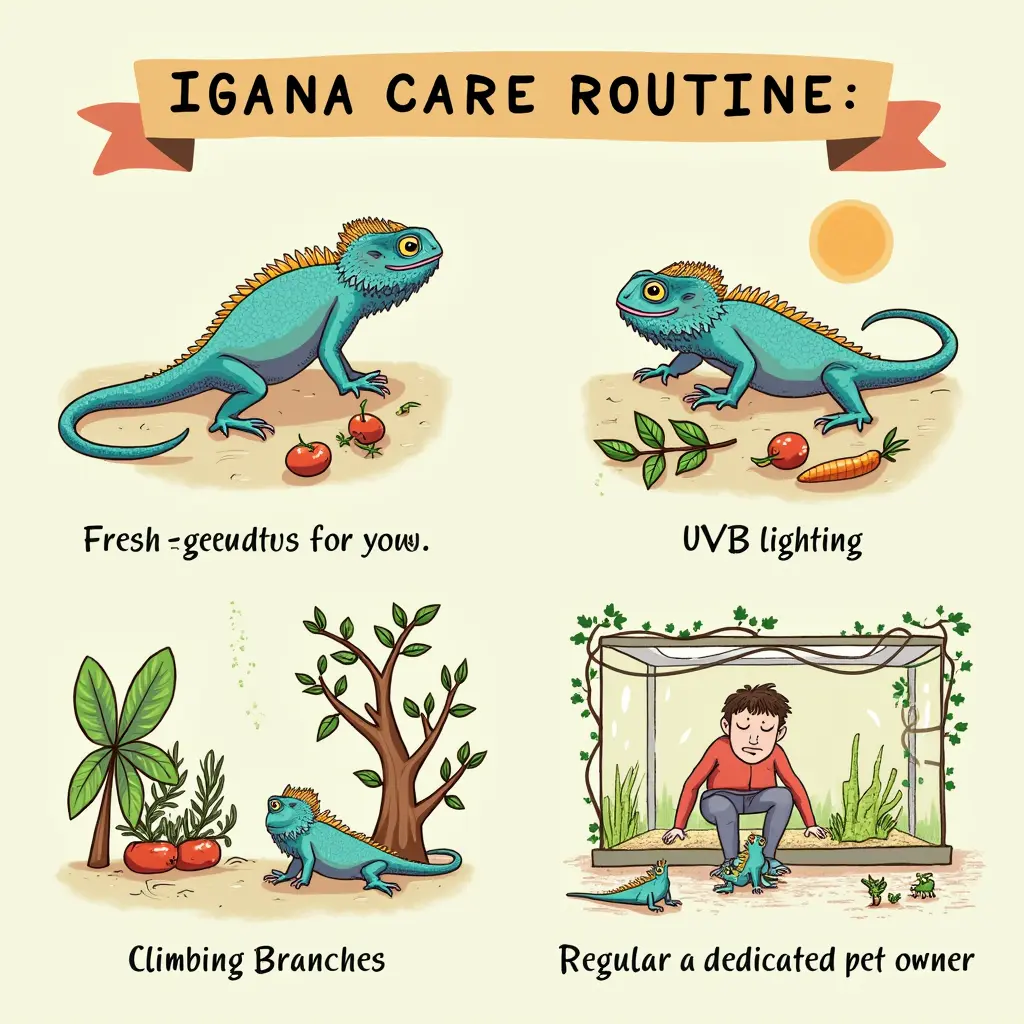
6. Common Myths About Iguana Lifespan
There are many misconceptions about iguanas’ lifespan. Let’s debunk a few:
- Myth: Iguanas only live a few years.
Fact: With proper care, captive iguanas can live 20 years or more. - Myth: Iguanas don’t need special lighting.
Fact: UVB lighting is critical for their health. - Myth: Iguanas can survive on any food.
Fact: An improper diet can cause severe health problems, shortening their lifespan.
Conclusion
Iguanas are remarkable creatures that deserve care and respect. Understanding their lifespan and the factors that influence it allows you to create an environment where they can thrive. Whether you’re caring for a green iguana, a blue iguana, or another species, your commitment can make all the difference in their quality of life.
By providing proper nutrition, a suitable habitat, and regular veterinary care, you can ensure your iguana lives a long and healthy life, possibly becoming a companion for decades.
Iguana Lifespan Iguana Lifespan Iguana Lifespan Iguana Lifespan Iguana LifespanIguana Lifespan
1 thought on “Iguana Lifespan: 6 Amazing Facts to Help Your Pet Thrive”